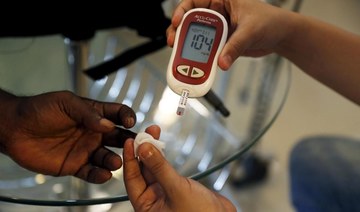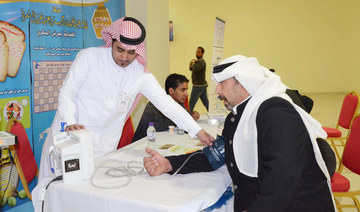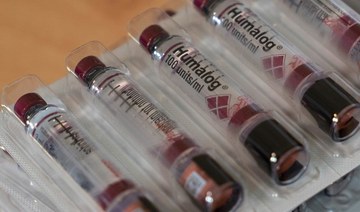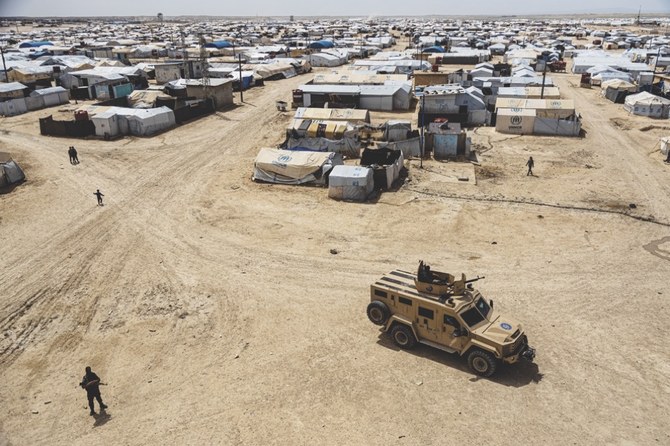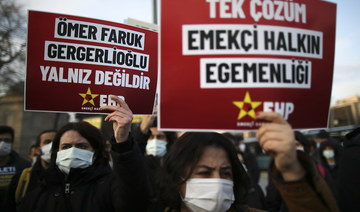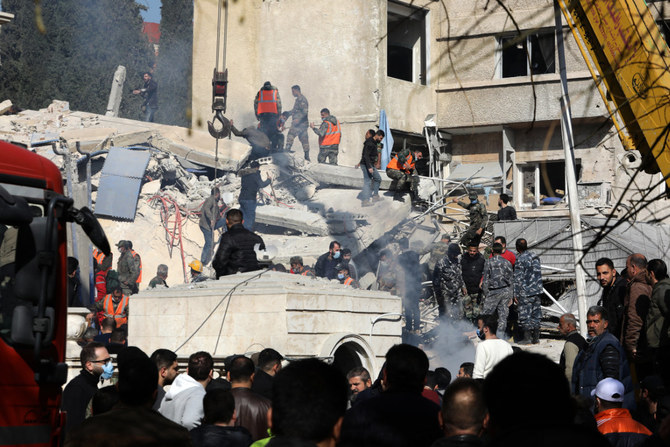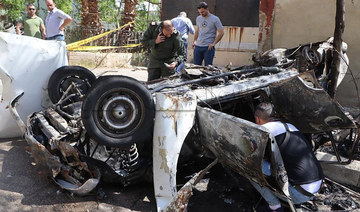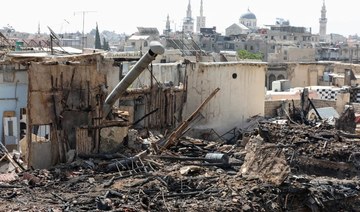DUBAI: In the ongoing havoc the coronavirus disease (COVID-19) is wreaking, a double bind has the Gulf region’s health experts worried — the rising cases of diabetes and obesity and the increased risk of mortality this population faces due to the pandemic.
According to the International Diabetic Federation (IDF), more than 39 million adults aged 20 to 79 had diabetes in the Middle East and North Africa (MENA) region last year. The figure is expected to increase to 108 million by 2045.
The IDF Atlas states that 15.4 percent of adults aged 20 to 79 in the UAE are diabetic, while in Bahrain the number is 19.6 percent. In Kuwait and Qatar, the figure jumps to 20 percent.
In Saudi Arabia, it is estimated that 15 percent of the adult population has diabetes, and many more are likely to be either undiagnosed or pre-diabetic, leaving them on the edge of the chronic disease.
These numbers are alarming by themselves, but what is more concerning is that amid the COVID-19 pandemic, some groups face a greater risk than others.
A study conducted by the Imperial College London found that people with Type 2 diabetes are twice as likely to die from COVID-19 as those without it.
The study also found that people with Type 1 diabetes were three and a half times more likely to die from a COVID-19 infection.
What causes such a lethal outcome? According to Dr. Nasr Al-Jafari of DNA Health Corporation, Dubai, the virus can be deadly because of its ability to stimulate a part of the immune system called the “inflammasome.”
“This can often cause an uncontrolled release of pro-inflammatory responses of the immune system, which leads to what has been described as a ‘cytokine storm’ (where the body starts to attack its own cells instead of fighting off the invading virus). The consequences are a potentially severe and irreversible damage to the heart and lungs,” Al-Jafari told Arab News.
“We also know that people suffering from both diabetes and obesity have a chronic activation of this same ‘inflammasome.’
“Therefore, these people are more at risk of developing the above-described inflammatory cascade of events, ultimately putting them at a higher risk of needing ventilatory support, and even a higher risk of death.”
Khadija Kapasi, a Kuwait-based clinical dietitian, says that the problem people with diabetes face is one of “worst outcomes.”
“People with co-morbidities like heart disease, diabetes and obesity have a higher chance of complications with COVID-19, and diabetics are particularly vulnerable because the virus can cause difficulties managing it,” she said.
Echoing the concerns of Al-Jafari and Kapasi, Dr. Asma Deeb, division chief of Pediatric Endocrinology at the Sheikh Shakhbout Medical City in Abu Dhabi, said that the risk of COVID-19 is expected to be high due to the wide prevalence of diabetes in the Gulf region.
“Diabetes can make COVID-19 symptoms more severe and can cause a greater likelihood of mortality,” she said, adding: “Obesity has also been identified as a risk factor.”
In addition to having diabetes, over half of diabetics in the region are reported as having at least one co-morbidity, said Kapasi. In Kuwait and Saudi Arabia, one in five are reported as having two or more co-morbidities.
“Saudi Arabia also ranks in the top 15 countries for obesity, which leads to diabetes and its complications,” Kapasi said. “The UAE, Bahrain, Saudi Arabia, Kuwait and Qatar are listed in the top 15 nations for the highest rate of diabetes per capita.”
Bassam Bin Abbas, professor and pediatric consultant of endocrinology at the King Faisal Specialist Hospital and Research Center in Riyadh, concurred, saying: “Diabetes is a risk factor for hospitalization and mortality of the COVID-19 infection.
“More than a third of the Kingdom’s adult population is obese, and obesity is also a risk factor for severe infection and diabetic complications.”
What is causing this rise in numbers? According to research from New York University Abu Dhabi, Gulf citizens may have a genetic predisposition to diabetes. But that is not the only reason.
“Experts concerned about the rapid increase in lifestyle diseases in this region have looked to history and environmental factors to identify the cause,” said Kapasi.
And the cause, according to her, is clear: “Unhealthy lifestyles and urbanization. Bahrain, Kuwait, Qatar, Saudi Arabia and the UAE are some of the wealthiest countries in the world today, and the lifestyle of the average citizen in these countries is dramatically different from that of the pre-oil era.”
Al-Jafari describes Type 2 diabetes, which accounts for over 90 per cent of the cases, as a “lifestyle disease.”
“The modernized lifestyle adopted by a large part of the population is a perfect storm for developing ‘insulin resistance’, which is at the root of this condition,” he said.
“There is an over-availability of, and dependency on, fast foods and processed foods. The lifestyle has largely become sedentary, particularly during the hotter months.”
According to all the specialists, the need of the hour is to raise awareness among people with diabetes and offer them more education and support to manage their condition during this difficult time.
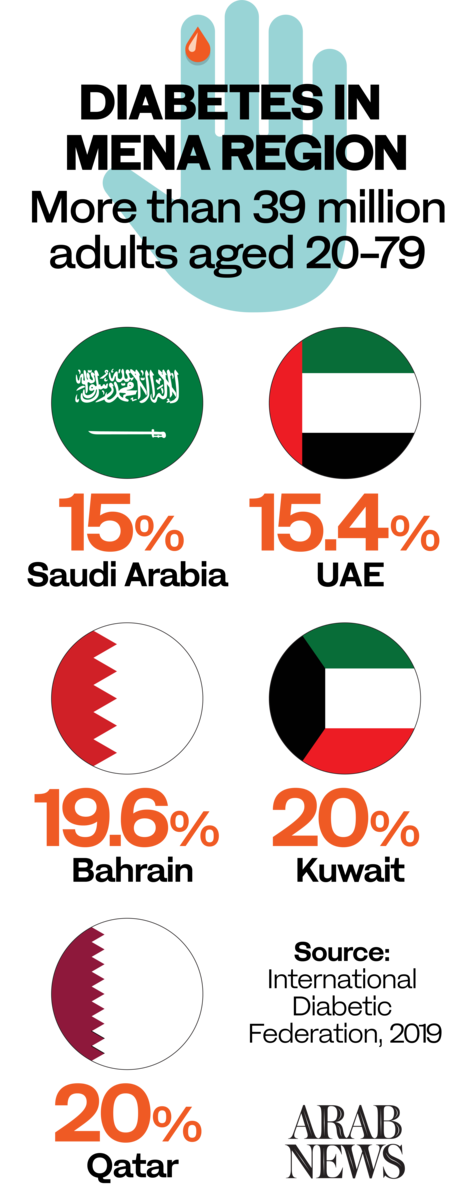
Diabetics are advised to strictly monitor their blood glucose level at regular intervals to ensure that it is under control.
“They should check not only fasting but also post-meal glucose levels, which are more likely to be higher,” said Dr. Abdul Jabbar, consultant endocrinologist, Medcare Hospital, Al Safa, Dubai.
“They should strictly adhere to their medication schedule, including for control of blood pressure and lipids. Wherever possible, patients should tele-consult with doctors to reduce exposure to the virus,” he said.
Diabetes in COVID-19 patients can also be more difficult to treat due to the fluctuations of blood glucose, concomitant sepsis, and high risk of developing diabetic ketoacidosis and multi-organ failure, said Dr Vikram Hundia, consultant endocrinologist at Al-Zahra Hospital Dubai.
“Ensuring an adequate stock of regular medications, including insulin, is vital during these times when an overburdened healthcare system, shortages in supply of drugs and travel restrictions may pose a challenge,” he said.
“Employers may need to provide special working conditions to those suffering from diabetes to minimize their risk of exposure,” he told Arab News, adding that Gulf Cooperation Council states needed to put in place coordinated and effective measures for diabetic patients to prevent exposure to this infection.
“Working closely with the diabetes management team, optimizing diabetes control, practicing a healthy lifestyle, and staying safe and fit will not only protect patients with diabetes, it will also help them emerge from this pandemic stronger and healthier,” Hundia said.
Many regional governments have taken steps to combat the rise in the numbers of lifestyle diseases such as diabetes and obesity, including the Saudi government’s “Quality of Life Program,” one of the Vision Realization Programs of Saudi Arabia 2030.
“It aims to enhance the quality of life in the Kingdom through lifestyle improvement by increasing individuals’ participation in entertainment, sport and cultural activities,” Bin Abbas, of the King Faisal Specialist Hospital and Research Center, said.
“Other measures, including taxing sugary drinks, fitness initiatives and focusing on preventative care, have already been rolled out to address the rising epidemic.”
Twitter: @CalineMalek





